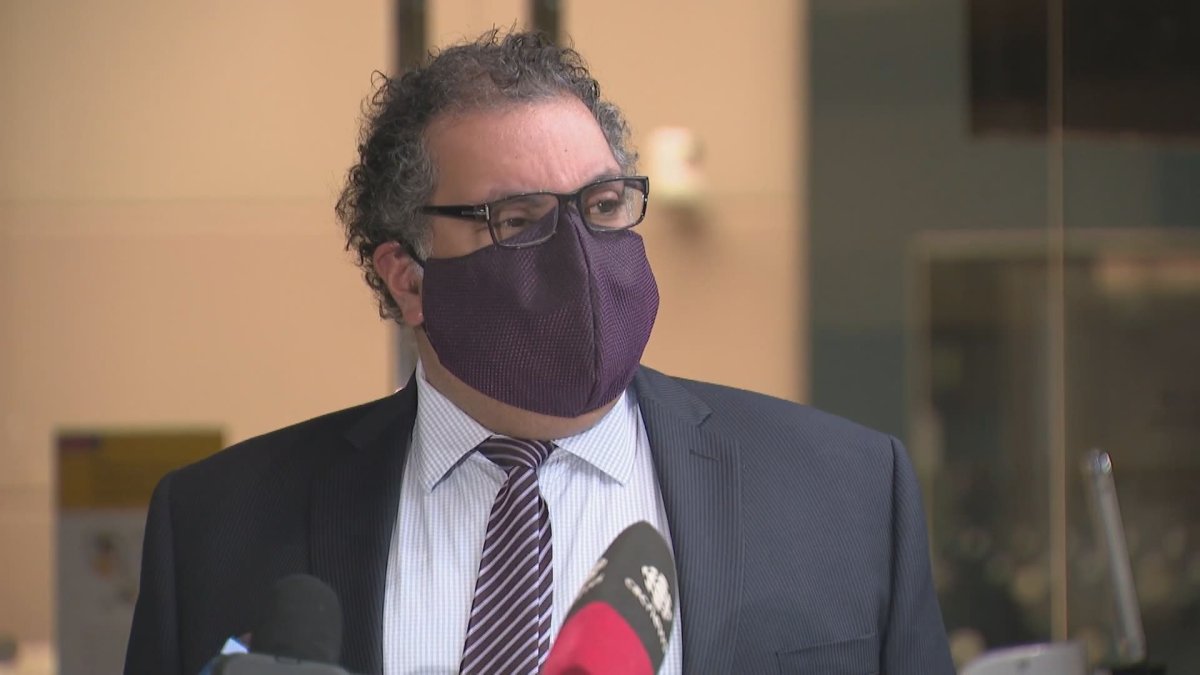After the coronavirus pandemic, Canadians will return to spending as a way to release pent-up demand — but not in Calgary. Add in the role the city has in the region’s economy, and that’s the argument Mayor Naheed Nenshi is making to the federal government to get added fiscal stimulus to the southern Alberta city.

“Many of the parts of the country are going to be in a massive economic boom when COVID ends,” Nenshi said. “A lot of pent up demand, a lot of economic activity from two whole years, kind of all being spent at once.
“But it won’t happen in Calgary. The fundamentals are still weak here.”
Calgary’s mayor said his city — mired in a pre-pandemic, years-long economic downturn — has an outsized influence on economies across the Prairies and into British Columbia, and that is the reason for Ottawa to make an “asymmetric investment” in Calgary.
“Don’t expect that Calgary will just benefit from national programs,” Nenshi said. “You actually have to invest in the city with the highest unemployment rate in order to see benefit.”
At a meeting of the city’s intergovernmental affairs committee on Thursday, Nenshi said he sent a pre-budget letter to the deputy prime minister and minister of finance that was different from years past.
Nenshi projects the hospitality and arts sectors are going to bounce back and didn’t discount the highest per capita gross income the city still enjoys.

Get daily National news
But he pointed to three areas of need for increased federal funding.

“The things I’ve really been pitching are a new economic development relationship with the federal government, particularly as it relates to our downtown — a real focus on jobs — as well as assistance in helping us with some of the technical aspects around conversion of downtown office buildings to other, more suitable uses as we go through this economic transition,” Nenshi told the committee.
“These investments in downtown Calgary aren’t just for 20 square blocks — they are for this vast region,” he said.
Nenshi asked for “significant investments in simulative infrastructure” in cultural and sports infrastructure.
The mayor highlighted the need for “real investment” in housing, with the aim to eliminate chronic homelessness in the city, a goal he previously said could be achieved with a “relatively modest” $500-million investment.
Ward 14 Coun. Peter Demong said “it’s prudent and it behooves the federal government” to pay some attention to helping Calgary’s economy.
“The city of Calgary has, in its role as being a lead municipality of Alberta, had an outsized impact on the Canadian economy,” Demong told Global News. “It has led to the economy for decades, has increased the investment to the Canadian economy in general, as has been outsized for a city of its size.”
While the federal government hasn’t announced when it will next table a budget, the House of Commons finance committee did table a pre-budget consultation report on Tuesday.
The Alberta government is due to release its budget on Feb. 25, a prospect that has Nenshi “very nervous.”
“If (the provincial government) starts cutting capital spending, for example, at the moment when we need stimulus, that’s a kick in the teeth to any economic recovery that we’ve got,” Nenshi told reporters Thursday.
“If they cut operating funding — as little as it is to the city for things like the low-income bus pass or police funding, which I don’t think is likely though they’ve done it before — that’s a real problem for us.”












Comments